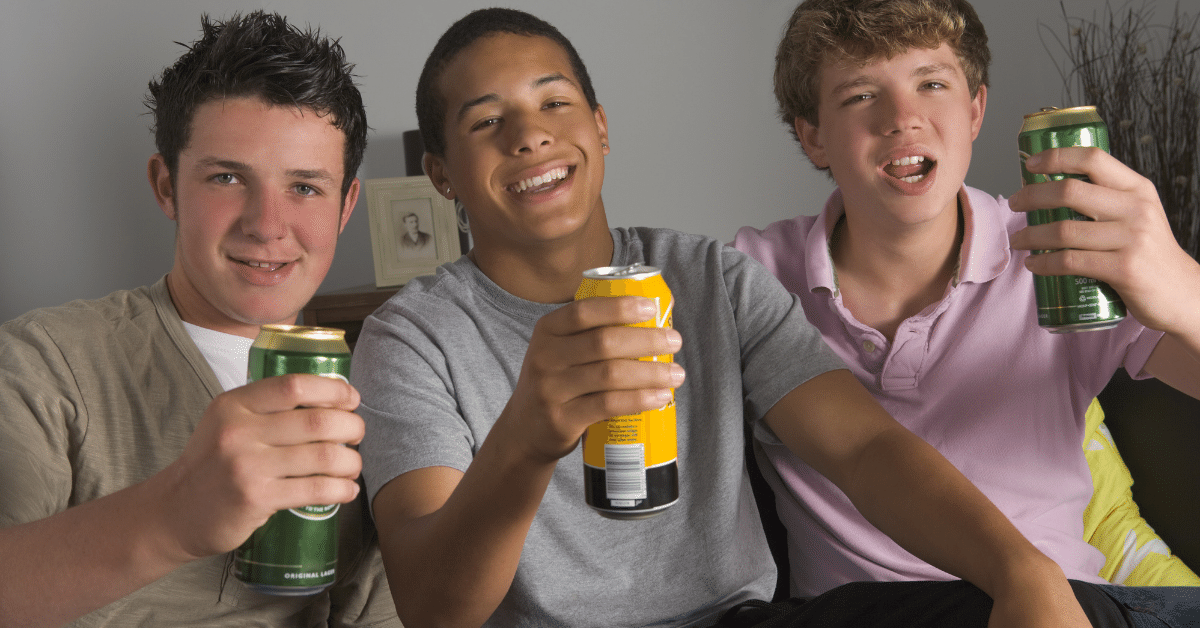Nearly 30% of high school students have consumed alcohol, according to the latest Youth Risk Behavior Survey. The Centers for Disease Control and Prevention cautions that underage drinking comes with dire consequences. The survey, administered by the CDC, monitors six behavioral categories among those under the age of 21, and one of those is substance use. They reported that of the teens who reported consuming alcohol 14% binge drank and 5% operated motor vehicles after drinking.
It also included 17% of high schoolers who rode with a driver who had been drinking alcohol. This was also the first year in which female high schoolers proved more likely to drink, and even binge drink, than male students. Underage drinking is a “dangerous” social phenomenon the CDC correlates with underachievement, social anxiety, legal trouble, unplanned pregnancy, vehicular homicide and increased likelihood of suicide.
Jill Vanderwood is a children’s book writer turned realistic fiction author. She’s published two recent books about underage drinking. The first, On the Rocks (2021), directly correlates with the second, Cheers. The two plots are anchored by the same event and focused on a boy and a girl. On the Rocks is told from the boy’s perspective whereas Cheers (2022) is told from the girl’s perspective. Vanderwood also blogs extensively about this and other topics. As such, we asked her some questions to probe the teenage perspective on drinking.
Is there an acceptable amount of underage drinking someone could’ve done and you still trust that teenager to drive?
“No, there is no acceptable amount. They will say things to you like, ‘I’m just a little drunk’ or ‘this person drank less than I did. Let them drive’ — that sort of thing. And you would be better off walking than you would be to ride with that person or to call a parent. Get somebody else to take you home. You may have to face the consequences that you might be drinking too, but at least you’d be alive, and you wouldn’t be putting your life in danger.”
A lot of teenagers feel like the notion of drinking responsibly means that there’s an acceptable amount they can drink. So, they want to know how much they can drink. Legally speaking, though, there’s no way for this logic to work. In fact, this level of reasoning only serves to get people in trouble with law enforcement or other authority figures.
Then, what does ‘drink responsibly’ mean?
“That doesn’t mean anything to children because no amount of alcohol is acceptable for anybody under 21. So, say you just had one drink and you were driving and you got pulled over and you weren’t above the legal limit, you still would be above the legal limit for a juvenile or a minor because there is no legal limit for a younger person drinking. They aren’t supposed to have any alcohol.”
Legal drinking limits are just one barometer for determining whether or not there’s an acceptable amount of underage drinking. Technically, the legal limit for teenagers is nothing. However, when young people ask these questions, what they really want is insight about how to manage drinking if and when they drink. This perspective treats underage drinking like premarital sex among teens. In either case, the idea is to anticipate irresponsible decisions and be prepared for them. They want to know how much they can drink and it be okay, and to be fair, the law doesn’t directly address the answer to that question to their satisfaction.
How to know how much of an alcoholic beverage a person can handle:
“Well, it’s kind of like, if a person is a male and they weigh more than a female, than they probably can handle more alcohol. It has to do with your weight; it has to do with how many drinks you’re drinking and how much food you have in your stomach and a lot of other things. And your experience with drinking. Say you have never had an alcoholic drink before. You won’t know how your body’s going to handle it at all. It’s called the blood-alcohol content, and a person that is lower in weight can’t handle as much as a person who has more weight on them.”
Ironically, getting to know your real limits comes by way of experience, which you’re not allowed to have until you’re 21. This is why 21 is a common age at which to have a lot of adverse, alcohol-related experiences. They’re legally allowed to drink, so they celebrate reaching the age of 21 by drinking irresponsibly. They consume haphazardly without any regard for what they’re limits might be, which leads to any of several significant problems. According to the National Highway Traffic Safety Administration, the age group from 21 to 24 accounts for a larger percentage of drunk drivers involved in fatal crashes than any other age group.
If you’re a teenager and your friend offers you alcohol, what’s the right move?:
“Well, part of it has to do with the situation. That’s in the book that I wrote. The first one was offered alcohol at school. So are you willing to take that risk? You already knew that the friend was drinking, and do you want to take a risk and become that person, too? And in a lot of situations, it’s an older sibling who will offer it, and then kids often want the respect of their older sibling, so they will take the drink or they’ll do whatever the older sibling is offering to them.”
Another part of the problem, of course, is that a friend who’s already been drinking is unlikely to handle confrontation well. This is why some teens wonder what to do in this situation since confronting the friend might exacerbate the problem.
If your friend drinks too much and passes out, what should you do?:
“In my book, I have a situation where the kids are at a party, and there is a girl that’s passed out on the floor. And the one kid has to decide whether they’re going to help that kid, and everyone’s telling him, ‘Get out of there. Just run because you’re going to get caught.’ So, he has to decide if he’s going to stay and help this person.
And other people are even walking over the person and just ignoring it, and as soon as he starts to call the police, they all run out of the house because they’re more afraid of the cops than they are of the person that’s passed out. The consideration should be to help that person first and not worry about your consequences as much because you can help somebody or save their life.”
For a lot of kids, the challenge of doing what’s right is difficult enough without such harsh consequences. When you might be seen as complicit with the crime or even an accomplice to it, that makes you even less likely to do the right thing. Unfortunately in these situations, lives are on the line. If you bail to get out of trouble, it might be dire decision for someone else, which might leave you with heavy regrets.

Choose Recovery Over Addiction
We're here 24/7 to help you get the care you need to live life on your terms, without drugs or alcohol. Talk to our recovery specialists today and learn about our integrated treatment programs.


 “That doesn’t mean anything to children because no amount of alcohol is acceptable for anybody under 21. So, say you just had one drink and you were driving and you got pulled over and you weren’t above the legal limit, you still would be above the legal limit for a juvenile or a minor because there is no legal limit for a younger person drinking. They aren’t supposed to have any alcohol.”
“That doesn’t mean anything to children because no amount of alcohol is acceptable for anybody under 21. So, say you just had one drink and you were driving and you got pulled over and you weren’t above the legal limit, you still would be above the legal limit for a juvenile or a minor because there is no legal limit for a younger person drinking. They aren’t supposed to have any alcohol.”

